INTRODUCING THE...
Morane-Saulnier H
-By, PlanesOfOld-
[Skip history for flying guide]
-HISTORY-
The H, was designed in 1913 and first flew that year, it was a single seater version of the earlier Type G, and both were very capable sport aircraft, with the Type H making the first non stop flight across the Mediterranean (from Fréjus in the south of France to Bizerte in Tunisia).
The Type H did not however have much of a chance to achieve many sporting victories as war broke out soon after it first came onto the scene and production of the type H turned to the war with the French Army ordering 26 of them as scout aircraft, the Royal Flying Corps also ordered a few, (but I can't find out how many).
The French machines saw limited service at the start of the war as reconnaissance aircraft, but pilots often used revolvers or rifles to shoot at German planes.
Germany built many copies of the Type H, built by Fokker, first as the M. 5, although they used steel tubes for the structure instead of wood, had longer fuselages and comma shaped tails. The M.5, when fitted with a synchronised forward firing IMG 08 machine gun, became the famous Fokker Eindecker series, with four variants, and the license built Pfaltz Eindecker series with six variants.
This particular plane is a pre war variant, with the Le Rohne 9C engine and no armament.
Flying guide
-1 activates the engine, this enables 'blip' simulation to slow down, as old rotary engines didn't have effective throttles (or no throttle in some cases) and speed was controlled by changing the fuel/air mix or setting the engine to run on 6 or 3 cylinders instead of the full 9.
You can press your landing gear button to make the rotary engine spin, (I've not yet found a good way to do this so it will properly synch with the propellor)
-Roll is very weak and delayed to simulate wing warping, however
rudder is powerful and should be used more than usual for turning.
-Low stall speed makes this quite easy to fly.
-COMBAT-
No
ENJOY!
It would be much appreciated if you leave some feedback in the form of a comment!
Specifications
General Characteristics
- Predecessor 1913 Morane-Saulnier H
- Successors 2 airplane(s) +35 bonus
- Created On Windows
- Wingspan 62.2ft (19.0m)
- Length 38.3ft (11.7m)
- Height 14.4ft (4.4m)
- Empty Weight 8,304lbs (3,767kg)
- Loaded Weight 8,782lbs (3,983kg)
Performance
- Horse Power/Weight Ratio 0.062
- Wing Loading 1.6lbs/ft2 (7.7kg/m2)
- Wing Area 5,595.6ft2 (519.9m2)
- Drag Points 3860
Parts
- Number of Parts 1230
- Control Surfaces 2
- Performance Cost 3,252

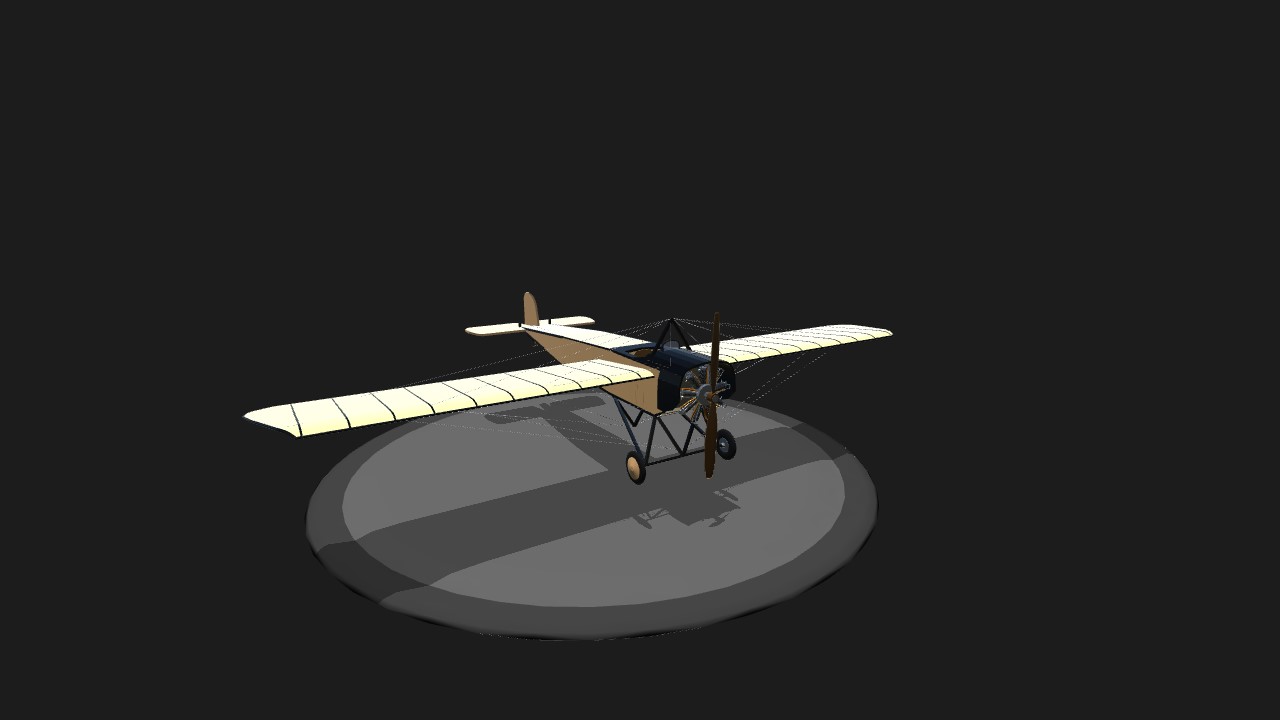
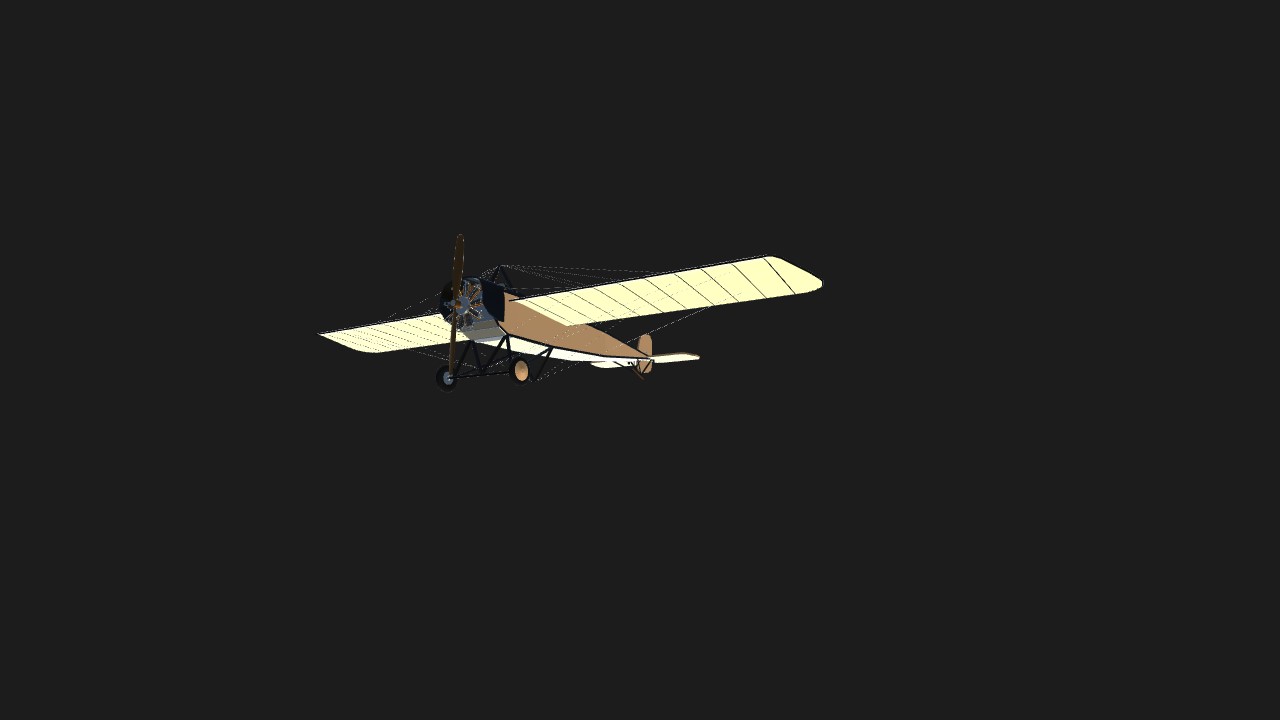
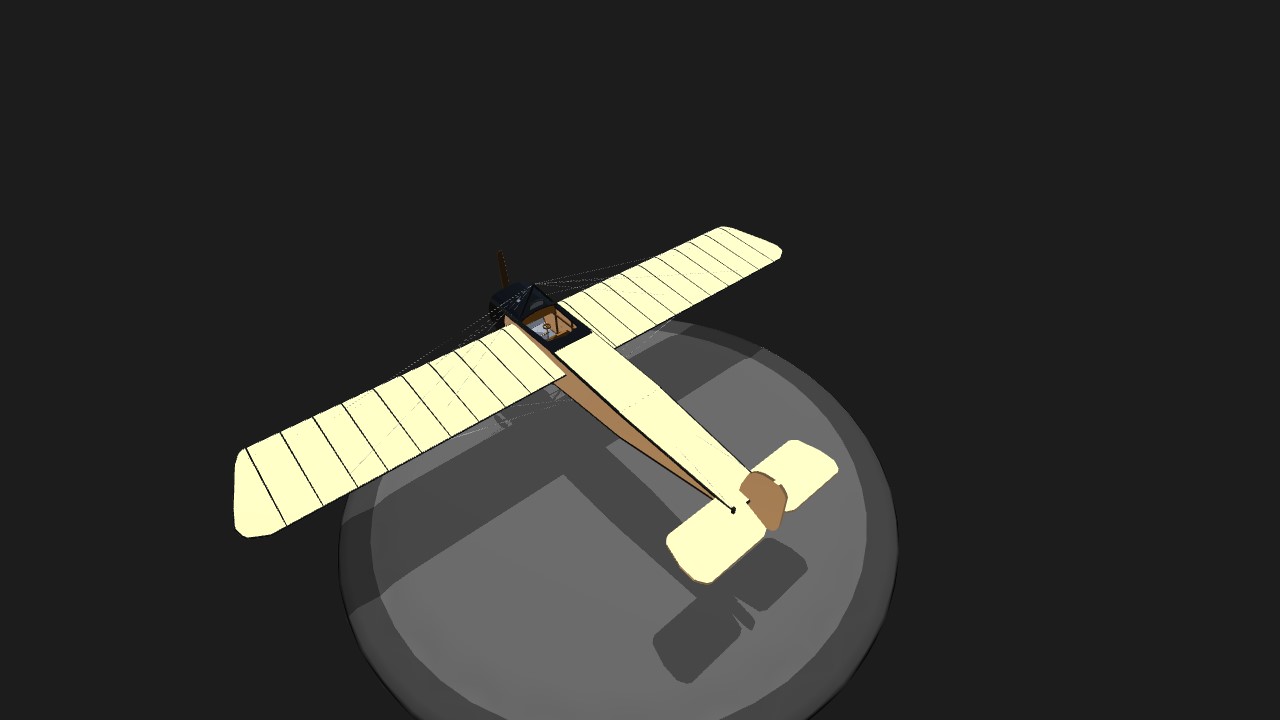
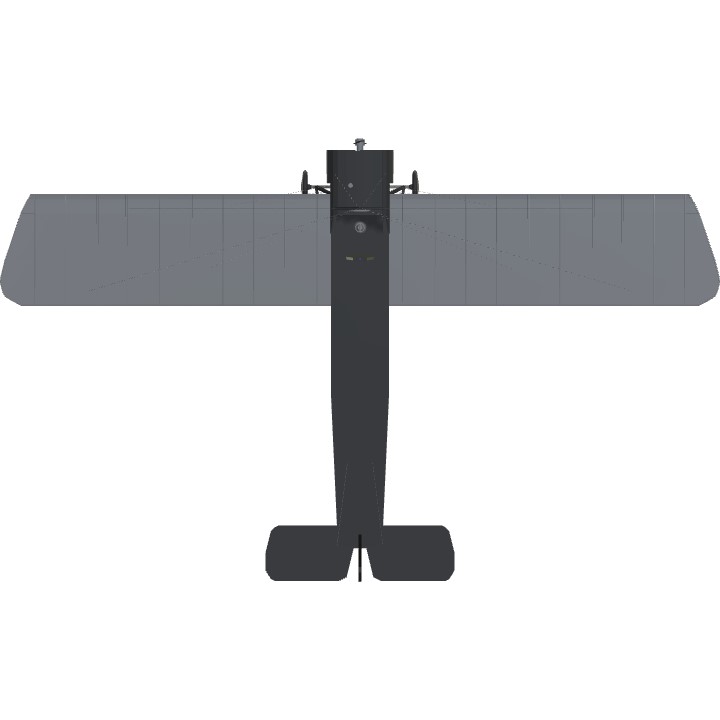
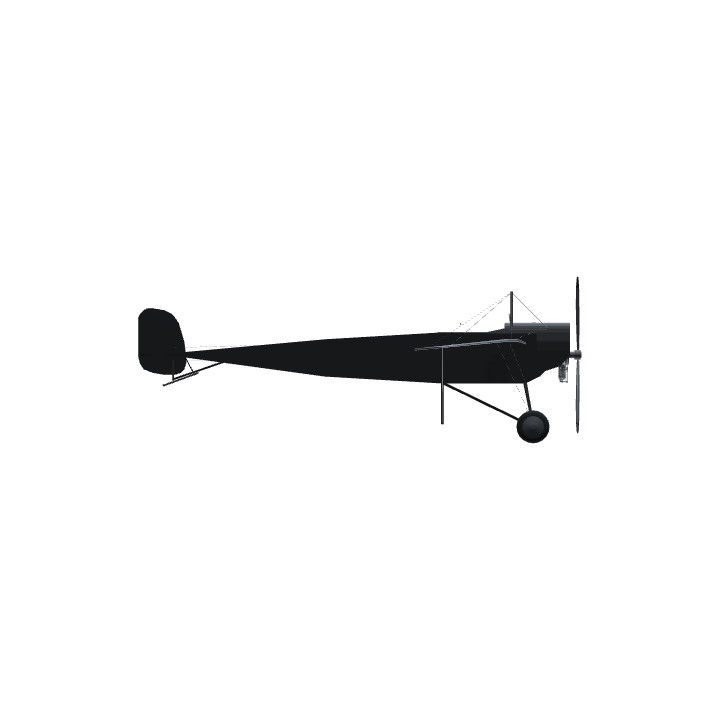
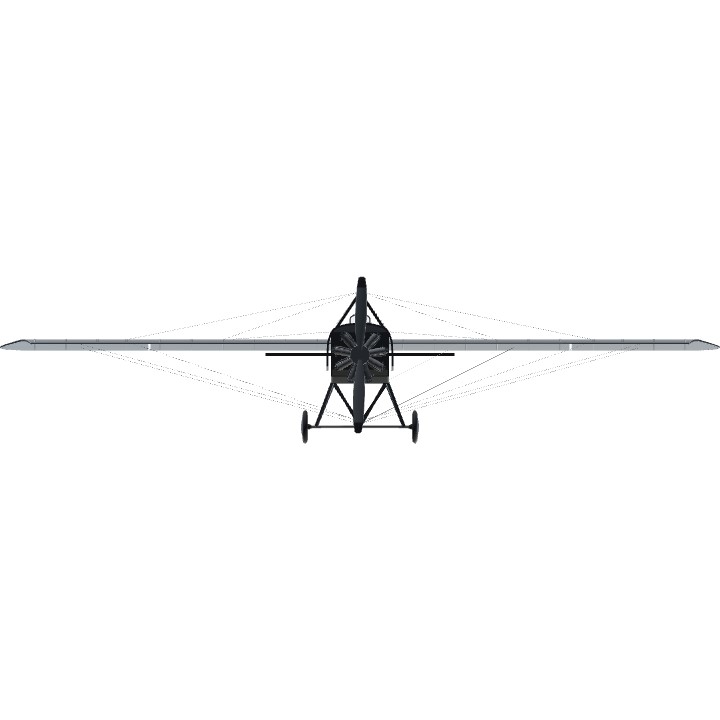
@Rb2h https://www.simpleplanes.com/a/YcfDX7/Planesofolds-new-trusty-toolboxQA
I assume that they are in here (possibly) I don't remember.
As for cannibalising them you may more easily find them on here:
https://www.simpleplanes.com/a/FlpD55/R-A-F-F-E1-De-Havilland-biplane-No-2
The undercarriage skids and much of the frame I think. Anyways, happy building.
@Rb2h it isn't a normal wing part of course, but you can probably find it if you cannibalise it! (The little wing pieces that the wires attach to on the elevators are - if memory serves me well, the part in its default mode) Also, I uploaded a "trusty toolbox" many years ago that has the modded wing part I used to use if you can't find it in my builds.
No way that's a normal wing part
Hello @PlanesOfOld, I just wanted to say that I am loving the older plane designs. Keep on building!
@VVMC Ah. I imagine that's either the engine, or the rigging wires. They tend to add a lot of lag, sorry about that.
@PlanesOfOld Good plane, though I’m not sure if my mobile device can handle the part count.
@Tang0five Thank you.
Those magnificent men in their flying machines, lovely job!